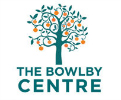 UNMASKING RACE, CULTURE AND ATTACHMENT IN THE PSYCHOANALYTIC SPACE
UNMASKING RACE, CULTURE AND ATTACHMENT IN THE PSYCHOANALYTIC SPACE
What do we see? What do we think? What do we feel?
EDITED BY KATE WHITE
Publication in March 2006 by Karnac
This book addresses the often hidden and ignored subject of attachment, race and culture. It is argued that too often issues of race, culture and ethnicity are seen as relevant only to black and ethnic minority psychotherapists and clients. It is felt that all psychotherapists and their clients bring a rich diversity of ethnic and cultural narratives to the clinical encounter. Each of us has a unique and complex sense of who we feel ourselves to be, as well as who others expect us to be, in the ever-shifting contexts of our individual families, societies and cultures. Each of us is likely to grapple with feelings of inclusion and exclusion, belonging and alienation, visibility and invisibility, power and powerlessness.
Some of the key questions the book explores are; How can we as therapists use our own experiences of difference in order to get alongside our clients, without collapsing difference and sameness into each other? Can we hold the tension between them? What is our responsibility as psychotherapists and supervisors for engaging in these issues, both in our own individual development and in the clinical setting, in the context of a society that structures our identities on the basis of colour coded racial categories?
The implications of the development of our identities within attachment relationships which are themselves embedded in particular constellations of racial and ethnic power dynamics are discussed. Chapters explore how we can we understand the very real impact of categories of identity such as race on the formation of our selves, at the same time as recognizing their socially constructed nature. Other questions posed by the contributors are about how these categories help to give us and our clients a secure sense of identity? And how do they constrict our sense of our own and our clients’ possibilities?
The book aims to bring together personal experience of difference and how this emerges in our work with clients. At its heart three Bowlby Centre members, Barbara Ashton, Cascia Davies and Irris Singer, share their experience in response to the following challenging questions; Can our individual narratives in relation to race, culture and attachment be unmasked in the therapeutic dyad to reveal our human connectedness? How can the exploration of our own racial and cultural identities provide us with therapeutic tools to work within and across multiple categories of cultural identity?
Kimberlyn Leary’s John Bowlby Memorial Lecture How Race is Lived in the Consulting Room, forms the centre piece and the scene is set by Farhad Dalal: Racism: Processes of Detachment, Dehumanisation and Hatred, with a response by Zack Eleftheriadou providing a clarifying and complementary discussion of his paper. This book provides a sustained and deep engagement with the subject at a level of complexity not often possible with a theme that is associated with such pain and conflict.
Order Here from
